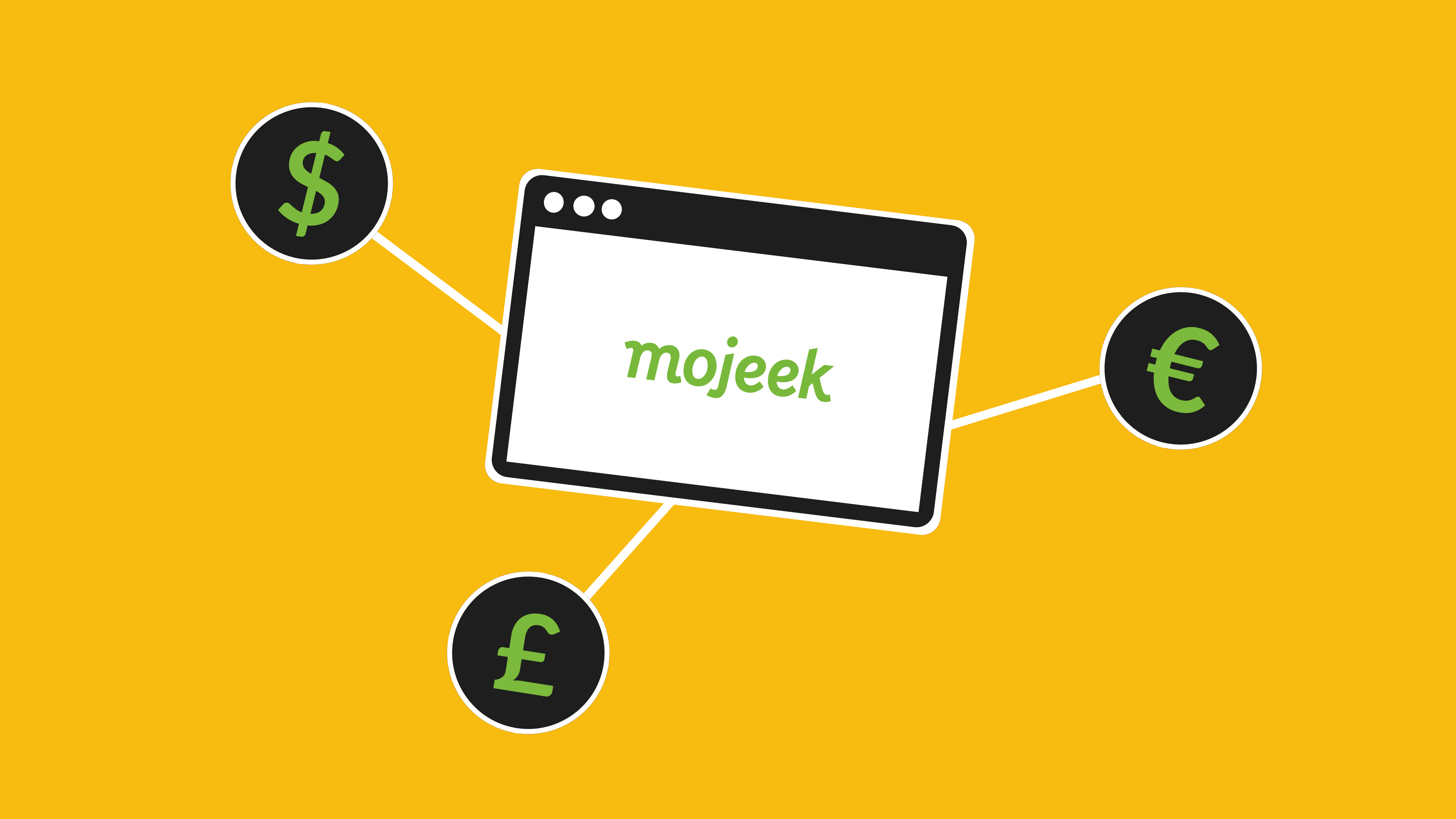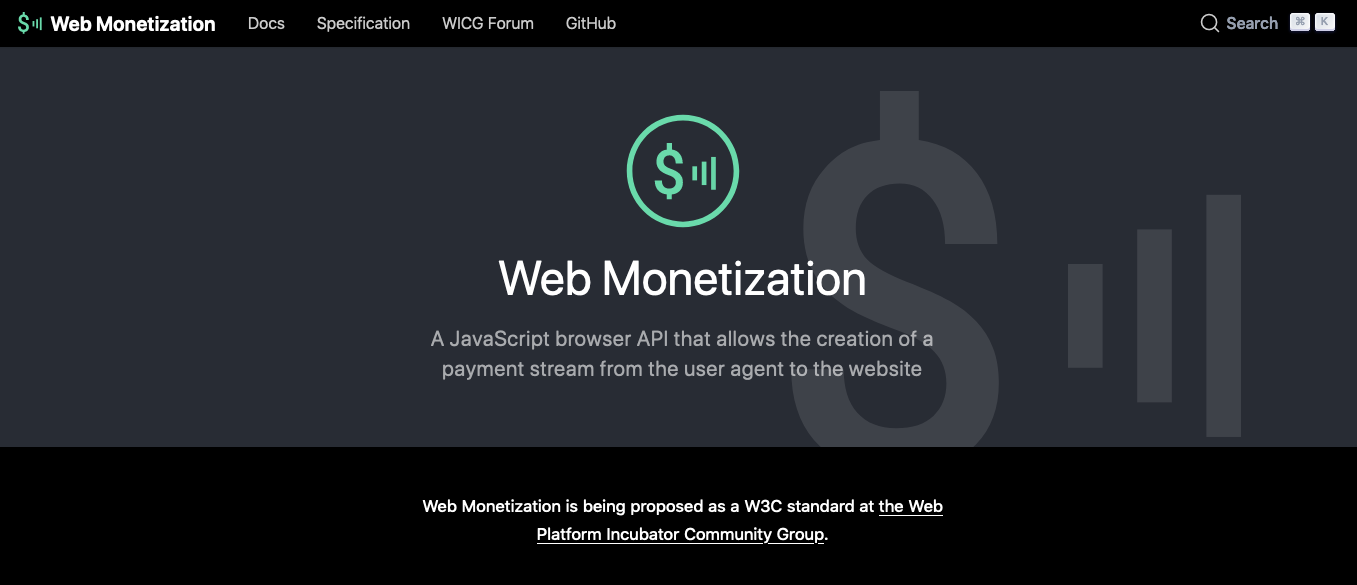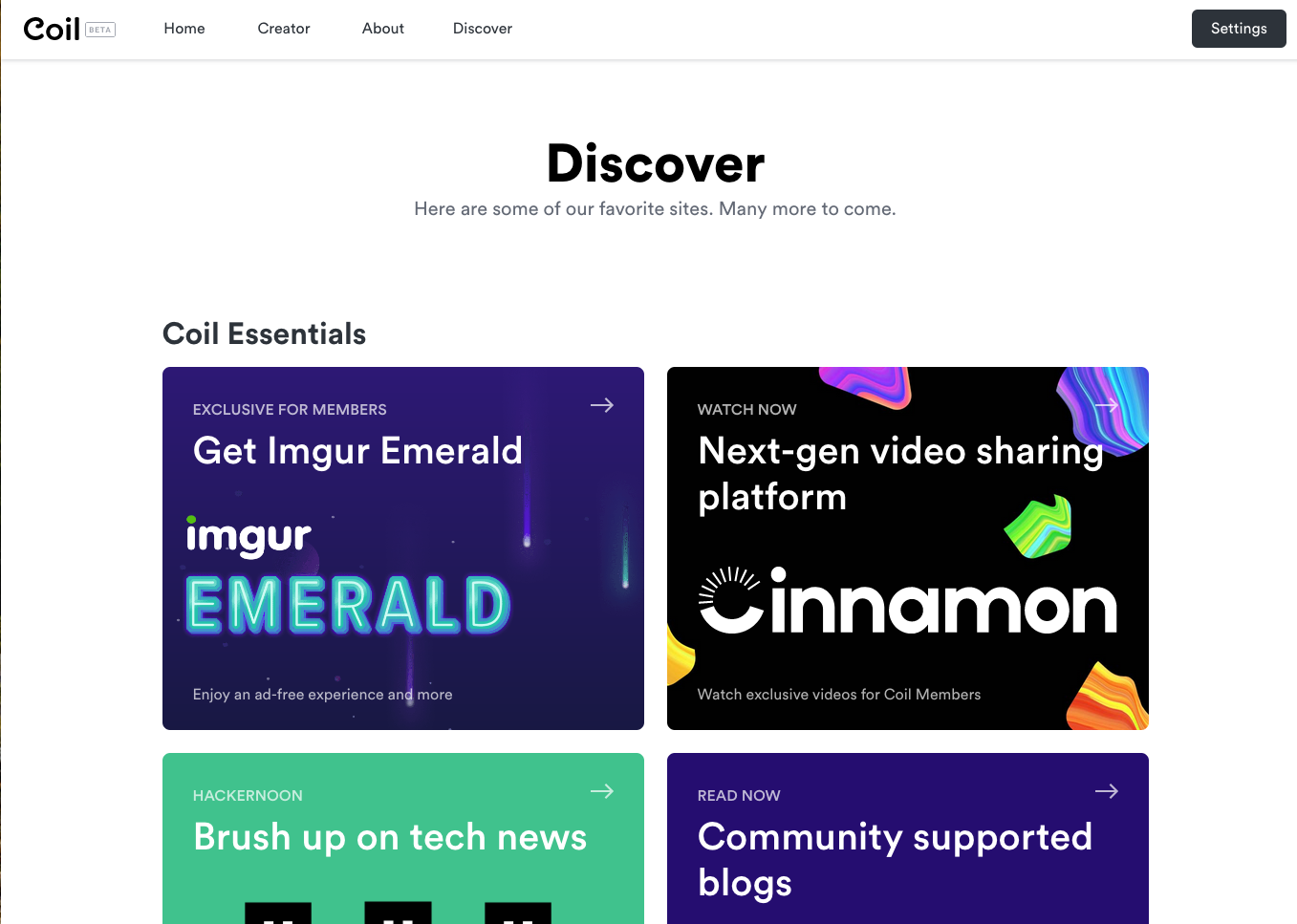Frictionless Donations Support an Open Web

One of the long-standing fictions that many of us have told ourselves about the Web is that the current funding model, that of surveillance advertising, has served us well. In fact, digital advertising has come to be dominated by Google, Facebook, and Amazon, all of which engage in data-harvesting practices that undermine both our privacy and autonomy.
As we said when announcing our privacy preserving search ads:
“Ads are not the fundamental problem. The fundamental problem is tracking.”
Our contextual advertising solution stands in stark contrast to the practices and business models of Google, Bing and all the many syndication search partners that they support.
As we work to establish sustainable revenue streams, we are also exploring complementary funding streams, and a new innovation has emerged offering that.
One alternative to ads, which has become increasingly popular in recent years is subscriptions; direct payments from subscriber to platform. However subscribing to all of the different services that you use on the Web would either expensive or cumbersome. Expensive if every service charged say $5 per month, or cumbersome if every service charged say $0.10 per month.
If only there was and easier way to send small payments directly to all your favourite apps and platforms. A way where you don’t have to pay substantial subscription fees and don’t face those elitist paywalls. As a matter of fact, this is an (internet) age-old problem, considered by Netscape a long, long time ago.
So let's say hypothetically you wanted to have an online newspaper [and] you wanted to read an article in that paper and maybe you wanted to have an economic relationship where you were paying for the information…one would think it was the most obvious thing to do to build into the browser the ability to spend money, but you may have noticed that didn’t happen.
Marc Andressen, Netscape Co-founder

Web Monetization
Enter Web Monetization, a JavaScript browser API that allows the creation of a payment stream from the user agent to the website. Based on the Interledger Protocol it provides a simple, ledger-agnostic, and currency-agnostic method for the transfer of small quantities of money. Web Monetization is a proposed W3C standard.
Put simply, when accessing a page that has a small piece of code in the head tags with the correct browser extension, one can stream money to the websites that are set-up to receive your support.
On top of this, Web Monetization allows for the whole process of payment to be undertaken in a way that protects the privacy of the person engaging in streaming of payments. This standard decouples the person sending money from the websites/creators receiving it by using the browser as an intermediary and without the use of a blockchain or the creation of a currency. Information about where money has come from is not sent to the receiver, and the money itself comes from a Web Monetization Provider.
Coil
The only currently-available Web Monetization provider is Coil. That being said, Web Monetization is built so that many streaming payment providers can easily leverage the protocol in order to provide this service. For $5 a month you can browse the Web using this extension and stream very small quantities of money to the people who are giving all of that free entertainment, content and functionality. One single signup can then be used in place of many.

This works since Coil currently streams payments to Twitch streamers, Imgur, and Condé Nast to name a few of the larger entities; on top of this they have brought on board a wide selection of bloggers, podcasters, and other content creators; see the full portfolio here. One of the best things about this way of paying for the Web is that it takes very little effort on the part of the person using it. Think of it as a consolidated subscription service, with privacy and open access baked in.
Web Monetization for Mojeek
This new model for funding the Web is something which we find interesting and are keen to support. It’s a novel and simple way to support the long tail of creators, and those who don’t want to be caught up in the surveillance advertising dragnet.
It’s all well and good saying that we need a less corporate, less controlled, less surveilled Web, but if we take no actions to push it in that direction, then all we have left is words. Mojeek has recently been added to the Coil portfolio and we hope you will be happy to join us in supporting this initiative.
FAQs
How do users turn off Coil on Mojeek (if they don’t want to contribute)?
Coil requires you to have an active account and their browser extension in order to stream payments; unless you have those two things, you will not be contributing/streaming payments when using Mojeek.
Where is it enabled on the Mojeek site?
Coil is active on all pages under mojeek.com, including but not limited to our support pages, homepage, and search results pages. Coil is not yet active on this blog, blog.mojeek.com.
How much does it cost me?
If you are signed up to Coil then it costs $5 a month, if you are not then it doesn’t cost anything, and payments will not be streamed from your browser to us via Coil. Coil payments will stream to any Coil enabled site; the $5 cap applies across all sites at a rate of $0.0001 per second, so if you read Coil enabled sites for more than 50,000 seconds (~14 hours) you will not be charged above that $5 cap.
Are costs capped?
At the moment Coil costs $5 per month, no more, no less. This is a flat fee which does not vary depending upon how much is streamed from your browser to the websites you visit.
Am I tracked by Web Monetization?
The protocol is built so that Web Monetization providers are unable to see the sites their subscribers are visiting. The process uses a payment pointer, a unique URL assigned to the payment account by the site which is receiving payment. Your browser will use this pointer to request a unique destination address and shared secret from the website's Web Monetization Provider. Through this process, the Web Monetization Provider is unable to correlate this pointer with a website. This process is explained in more detail on the Web Monetization website.
How are payments sent and received?
Payments are sent and received using the Interledger Protocol which routes packets of money across independent networks. These payments leave from Coil’s wallet and arrive in a wallet owned by the site that you are streaming payments too.

